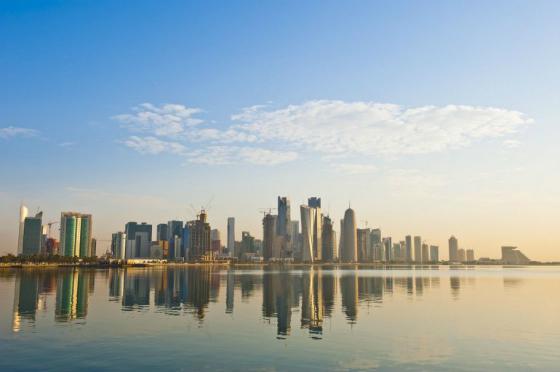Qatar's government has acted effectively in protecting the economy against sanctions imposed by other Arab countries, an International Monetary Fund official said on Wednesday after leading an IMF team on a week-long visit to Doha.
"The impact on banks’ balance sheets was mitigated by liquidity injections by the Qatar central bank and increased public sector deposits," Mohammed El Qorchi said in a statement.
"These reactions reflected effective coordination and collaboration among key government agencies." Qorchi also said authorities had acted quickly to reroute trade disrupted by the sanctions and establish new sources of food supply, allaying fears of potential shortages.
The initial concern that trade disruptions could impact the implementation of key infrastructure projects has also been mitigated by the availability of an inventory of construction materials and of alternative sources of imports.
The official said that Qatar’s banking sector remains sound, with high asset quality and strong capitalization. In the aftermath of the diplomatic rift, banks’ liabilities to non-residents fell sharply. The impact on banks’ balance sheets was mitigated by liquidity injections by the Qatar Central Bank and increased public sector deposits. These reactions reflected effective coordination and collaboration among key government’s agencies.
Qatar monetary authorities stand ready to meet any future withdrawal of non-resident deposits.
“Structural reforms are progressing. The Supreme Council for Economic Policies and Investment has approved the second national development strategy, with enhanced focus on economic diversification. On labor and residency reforms, Qatar recently announced a visa-free entry program for 80 nationalities to stimulate tourism, created a new permanent-resident status for foreigners and has approved a new law to protect domestic staff.”
Over the medium term, non-hydrocarbon GDP growth is expected to reach 4.8 percent, as structural reforms are implemented. Headline inflation remains subdued (0.8 percent year-on-year-basis in June) even though transportation (8.9 percent) and food costs (2 percent) have edged up and delays caused by rerouting trade have raised operational costs for some businesses.
“Fiscal consolidation is proceeding, underpinned by current expenditure cuts and an increase in non-oil revenues. The central government deficit is projected to decline to 5.9 percent in 2017 from 8.8 percent in 2016. The 2018 budget is expected to continue with gradual fiscal consolidation, focusing on the introduction of key tax policy and administration measures, including the introduction of a VAT and excises during the first half of 2018 and further rationalization of recurrent expenditures. The current account position is projected to improve to a surplus of about 3.9 percent of GDP in 2017 from a deficit of 7.7 percent in 2016, on account of contraction in imports and recovery in oil prices.
The Peninsula Qatar
31 August






































































